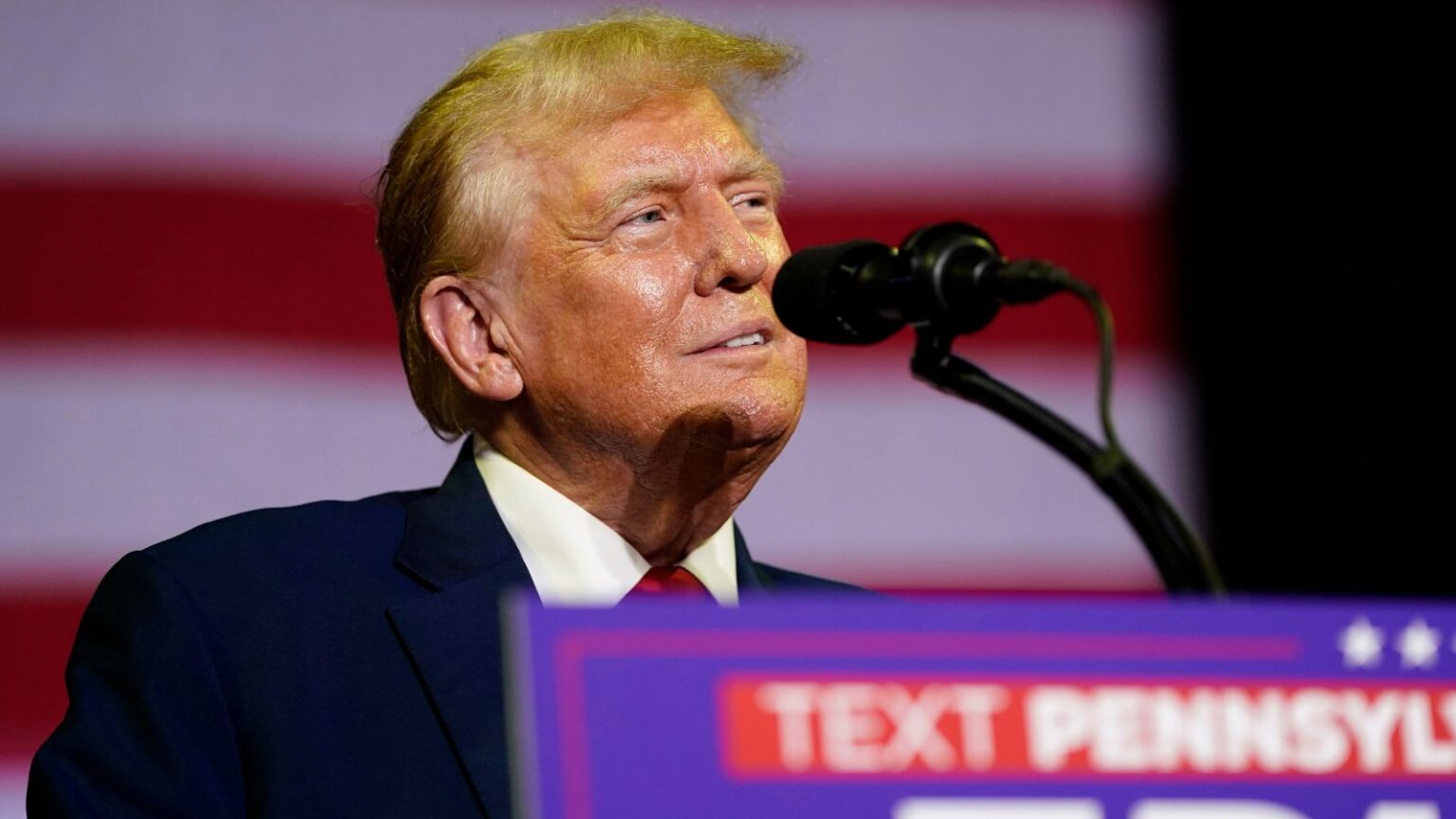Trump Finalizes VP Shortlist Ahead of GOP Convention: A Historical Decision Looms
Atlanta, GA — As the Republican National Convention approaches, former President Donald Trump has whittled down his vice presidential shortlist to a select few contenders, setting the stage for a pivotal announcement that could come just days before — or potentially even at — the convention next month. Trump, addressing reporters on Saturday, confirmed that he has already made his decision and hinted that the chosen candidate will be present this Thursday night in Atlanta for the first debate of the general election campaign against Democratic President Joe Biden.
The significance of Trump’s vice presidential choice extends beyond the current electoral cycle; the selected individual is likely to become the immediate front-runner for the Republican presidential nomination four years from now, assuming Trump secures a second term due to constitutional limits. However, such a position will come with substantial expectations of unwavering loyalty to Trump and his inner circle.
Historical Context: A Precedent of Vice Presidential Dynamics
The dynamics between a president and their vice president are complex, heavily influenced by historical precedents. Trump’s fallout with his first vice president, Mike Pence, is a stark reminder of these complexities. Pence’s refusal to participate in Trump’s attempts to overturn the 2020 election results — based on unfounded conspiracy theories — led to a public and political rift. This has left Pence withholding his endorsement in the current campaign cycle.
Trump has emphasized the importance of selecting a vice president qualified to assume the presidential role if necessary, while also considering other factors such as fundraising abilities, media performance, debating skills, potential to overshadow, and personal appearance.
In true Trumpian fashion, his campaign has cautioned that “anyone claiming to know who or when President Trump will choose his VP is lying, unless the person is named Donald J. Trump.” Trump’s reputation for unpredictable and dramatic decisions suggests even the best-laid plans could shift at any moment.
As the GOP gears up for the convention in Milwaukee, beginning July 15, we examine the top contenders for Trump’s vice presidential pick.
1. Doug Burgum
North Dakota Governor Doug Burgum is a notable candidate, embodying the wealth and business acumen Trump admires. A former software executive whose company was sold to Microsoft for over a billion dollars, Burgum also has extensive experience in real estate development and venture capitalism. Despite a faltering presidential bid, Burgum has emerged as a staunch Trump ally, frequently appearing in media and at Trump-related events, including his criminal trial.
Selecting Burgum would mirror Trump’s previous selection of Pence — a governor with limited national name recognition. At 67, Burgum’s lower profile and substantial financial backing could serve Trump well, though the pairing of two older white men may raise questions about the party’s broader appeal.
2. JD Vance
Senator JD Vance of Ohio, author of the bestselling memoir “Hillbilly Elegy,” has quickly risen to prominence in the political sphere. Although Vance initially criticized Trump harshly, labeling him as “America’s Hitler,” he has since become one of Trump’s fiercest defenders, especially on matters of foreign policy, trade, and immigration.
At 39, Vance’s youth juxtaposes the advanced ages of both Trump and Biden, bringing millennial energy to the race. However, the lingering history of Vance’s past insults towards Trump could be a significant hurdle.
3. Marco Rubio
Senator Marco Rubio from Florida presents a strategic option for broadening the GOP ticket’s appeal among moderate Republicans and Hispanic voters. Rubio, the son of Cuban immigrants and a prominent voice on foreign policy, could help Trump attract demographics that leaned towards Biden in 2020.
Despite their bitter rivalry in the 2016 primaries, the current political climate suggests a rapprochement is possible. However, Rubio’s Florida residency poses constitutional challenges that he would need to navigate.
4. Tim Scott
Senator Tim Scott of South Carolina, the only Black Republican senator, could bring racial diversity and a unique rhetorical style to the ticket. Known for his inspirational speeches and strong religious convictions, Scott could potentially soften Trump’s image and broaden his appeal among minority voters.
Despite an unsuccessful presidential campaign, Scott’s steadfast loyalty to Trump and energetic campaigning might make him a compelling choice. His oratory skills, however, will be tested in a debate against Vice President Kamala Harris.
5. Elise Stefanik
Congresswoman Elise Stefanik of New York, the only woman on Trump’s shortlist, could help counterbalance Trump’s challenges with suburban and college-educated women. Stefanik’s transformation from a staffer for mainstream Republicans to a fervent Trump supporter showcases her loyalty and adaptability.
Her aggressive defense of Trump during impeachment trials and her proactive public stances have bolstered her profile within Trump’s circle. However, her relative youth and limited experience in the House raise questions about her readiness for the national stage.
6. Ben Carson
Ben Carson, former Secretary of Housing and Urban Development, maintains a strong personal rapport with Trump. As a prominent Black conservative figure, Carson could enhance Trump’s appeal among minority voters. Known for his calm demeanor and storied medical career, Carson, at 72, poses little threat of overshadowing Trump but carries past controversial statements that may be used against the ticket.
7. Byron Donalds
Representative Byron Donalds of Florida stands out as a fresh, dynamic option for Trump. As a conservative Black congressman, Donalds could assist in engaging younger Black voters disillusioned with Biden. Nevertheless, his controversial comments and the necessity to relocate if selected as a running mate present challenges.
As the political landscape remains ever-volatile, Trump’s final decision will be closely watched, potentially reshaping the trajectory of the upcoming election and the Republican Party’s future.
Source: Indian Express News
